

What’s the real value of education? does it provide us with decent jobs and a sufficient level of knowledge to find a place in today’s society? Or, does it give us something more?
Education should give us the tools to determine our own future. Yet, in some countries, you’re not even able to dream for a future which is different from your current reality.
Ali’s reality wasn’t easy at all.
He comes from Iran and he’s very young. He didn’t receive any education because his father forbade him to go to school. Instead, he was mandated to work in the family business since he was very little.
At home, Ali’s family has three looms they use to make clothes with; he would work 10 hours a day, every day, just to bring home what’s necessary to pay the rent. Sometimes, that meant not enough for eating.
Every finished piece is sold to wholesalers for the equivalent of 1.50 francs – nothing. Even if he made dozens per day, and the cost of life in his country is extremely low, the profit wasn’t enough for him to be able to enjoy that sense of “carefreeness” that every child should deserve. When children in other parts of the world were playing “hide and seek” in their backyards, he was already loaded with the responsibilities of an adult. This inevitably made him grow faster than his peers.
Ali, now looks at the future with a positive and optimistic eye. “I’d like to go back to making projects”, he says with a huge smile, “in Iran you can’t make projects…but here you can”. When your family is poor and your life was all about working on a loom without a break, it’s hard to imagine a different future. This is your reality, the only one you know in Iran.
This makes me reflect about the disparity with wealthier countries, where we’re surrounded by thousands of different life options and our decision-making is supported by education. Education broadens horizons, and should fill the gap between dreams, or “projects”, and their realization.
However, there are two undeniable facts; that dreams come after survival, and, that education can’t feed you, but work can.
For Ali’s part, now he can finally dream. He’s enthusiastic about his new life and he’s determined to stay here in Geneva. He only hopes the authorities will grant him the refugee permit that he’s still waiting for. What he likes most about Geneva is the mix of cultures and ethnicities which seems welcoming. In Iran it’s totally different; he explains that refugees are treated cruelly and sometimes even killed. The same fate often hits those who try to leave the country, which is something the government opposes.
For this reason, he risked his life on the Turkish frontier. He was lucky.
He arrived in Switzerland after walking 55km not without difficulties and, yes, now he can say that he’s happy.
Our conversation stops here…but my mind keeps travelling…I hope he’ll achieve his dreams.
Martina
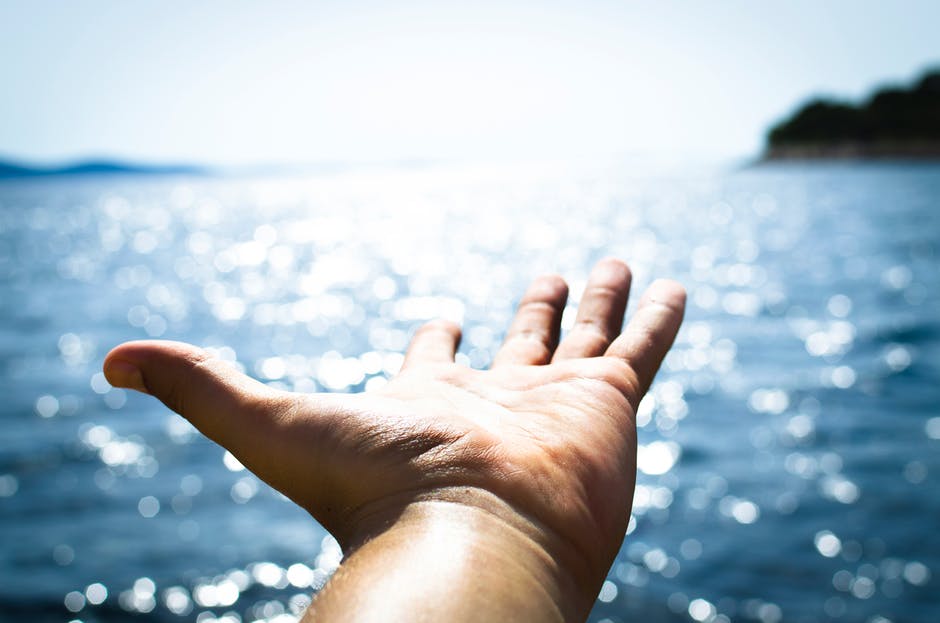

Ahmed is Palestinian, from Gaza. In his country he worked with young people and children with disabilities. Social work is that kind of job that only people with a sincere calling can do. Dedicating time and effort to improving the lives of disadvantaged people requires having a huge heart.
Ahmed’s heart carries the permanent marks of a bullet which almost killed him. He shows me several scars all over his chest and arms, but in his voice there isn’t even the slightest sign of resentment. His altruism will never be pierced by hate.
He was still in school when a group of armed men entered his classroom and started shooting at kids with an inexplicable cruelty. They surely harmed or even killed some of his classmates, he doesn’t tell me, and they kneecapped the teacher who was trying to protect them. He never found out who these people were—probably Palestinians like him. This surprises me because the media usually lead us to think that the only enemies of Palestinians are Israelis but, in fact, there are numerous armed groups within the same country which contribute to a chaotic, unsafe and unstable environment. How can a country defend itself in the international arena if people are fragmented and can’t even trust each other? Ahmed also tells me that he has many good friends in Israel and that they will come to visit him now that he’s in Geneva.
Human relations go beyond borders and wars; in some cases, what separates us can be the reason for stronger links.
In 2007, when life was particularly harsh in Gaza, the only “safe” places were schools and hospitals. Entire families were seeking some refuge in various buildings and Ahmed was running from place to place bringing essentials and comfort without a break; it was something only local people could do because the situation had become too dangerous for foreign NGOs to stay. It was a hard time for volunteers like him, however, he did not even think for a second about giving up because he strongly believed in the higher value of his commitment. Helping people is something natural for him, as well as his everyday job; it is a moral duty towards his people, a way of giving back to his community.
He misses his job. He misses the kids with their smiley faces painted with flowers and butterflies. He doesn’t know when he’ll get to see them again. However, he’s optimistic and he feels lucky for being in a safe place. Another reason why he’s happy, he says, is because he now lives in an apartment from which he can see outside; now, the sun comes in through the windows and fills his room with natural light. It sounds like a simple thing—something to be taken for granted—but it is not. Before, he was staying in an underground bunker designed to give a first shelter to the immigrants that arrive in Geneva. The same room can host tens of persons, living one next to the other without any privacy, in an indecent situation. They can live there for months, even up to a year, until they find another accommodation, or they can be transferred if their heath conditions require it. It is not hard to imagine that dormitories, where there is no circulation of fresh air, cause the occupants’ health to deteriorate and increase the probability of diseases to spread. There could be found plenty of arguments against the use of bomb shelters as accommodations for asylum seekers, however others might claim that at least they provide some shelter as an alternative to sleeping in the streets. Although there have been numerous complaints by immigrants about the current facilities, and the canton has proposed the construction of designated structures, local people have opposed it.
How can we then find a compromise that would satisfy everyone’s needs? Are bunkers acceptable as temporary solutions? Or should the canton be responsible for providing proper accommodations despite the local opposition? Are there any other unexplored options? Could voluntary single actions be one? It has already been successful in some cases that individuals with spare rooms have welcomed refugees? And finally, should local authorities follow the example of altruistic individuals like Ahmed by relying on more grass roots efforts to help refugees?
I look forward to reading your responses.
Martina
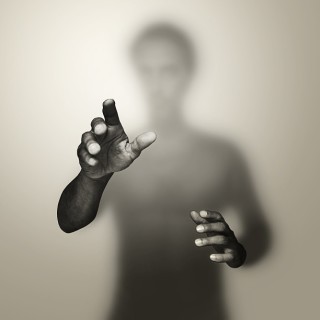

The first person I will write about is a young man from Eritrea. He’s sitting in front of me with a huge smile on his face, his eyes deep and sincere. He arrived in Geneva two years ago but he’s still waiting for his residence permit. His sister arrived after him and ended up in Zurich, however they cannot live together. The allocation of asylum seekers among the different cantons is decided by the authorities and family reunification in Switzerland is a privilege granted to spouses, registered partners and minors only. The train is much too expensive given the 500 francs or less they receive per month, so they don’t see each other as often as they would like… the irony is that they were together in the dangers of war, to be separated in peace. It is a matter of norms, I understand, but I also acknowledge that they need each other because they have no one else. Fraternal ties are a huge source of psychological support, especially when one arrives alone in a new country and everything and everyone seems hostile. I feel it is unjust to deprive this people of the only connection to their identity, to their roots and their home.
They escaped war, a war that has been going on for too long and nobody understands why (I guess it’s always hard to find valid reasons to justify those atrocities). Or better, they know that the reason is merely political. Independence came after thirty years of civil war with Ethiopia but that was not it; president Isaias Afwerki soon after began a war with several of the neighbouring countries. Sudan, Yemen, Djibouti, Ethiopia, Somalia…Eritreans still haven’t experienced peace. Why? The country has been led by an authoritarian, repressive government since its independence in 1993; in the shadow from media coverage, president Afwerki is responsible for severe violations of human rights and fundamental freedoms. The authority of his regime is grounded on the industry of war. In other words, it is a diabolic mechanism for which the government is interested in keeping a status of warfare in order to subjugate its people and avoid social unrest. War keeps them busy, unable to rebel to the ruler. The state exercises direct control over the population by forcing them to serve in the military. 2 years of service are compulsory for both men and women from the age of 18, although very few can get out of the military once this period expires. Most of them are kept in the army for much longer; the state “employs” them, as if it were a normal job…except they have no say in it. It is so hard to create a family and plan for the future because people don’t know how long they will be kept in the army.
Now let’s go back to the young man sitting in front of me for a moment. He served in the army for 8 long years, including tough military trainings and operations. In 2015he finally was successful in fleeing. 5’000 to 6’000 people risk their lives every month trying to escape. To leave Eritrea is not an easy thing; the state does not allow it, applying a cruel “shoot on sight” policy, and it is extremely costly. Freedom has a high price because at every border corrupt officials and human traffickers demand a fee for the right to pass. The “minimum” amount needed to reach Europe is 6’000 euro. To reach even closer countries like Angola or Israel you need around 10’000, while for Canada, Australia and South Africa the cost is doubled. He tells me that for those countries it’s a totally different story; alternatives to stay there are either showing that you can live independently with your own money or that you have an internationally recognised degree that can be used for employment. This basically means that farmers, carpenters and bricklayers are automatically excluded, even if a family member is waiting for them. They will never have the economic means to pay for their living and they don’t have a higher education degree. Most of the asylum seekers from Eritrea aim to stay in Europe…but closer doesn’t mean easier.
There’s the issue of the travel itself…after paying 2’000 at every border my young interviewee finally reached the coasts of Libya. He got on a boat that had a maximum capacity of 100 into which 250 were packed. Men, women and children, like animals to the slaughter. At some point the boat started to fill up with water when they were still in the national waters of Libya. They called for rescue but they couldn’t be helped because of international regulations. Here comes the tragicomedy; until a boat doesn’t reach international waters, rescue teams from NGOs or other countries are not allowed to intervene, only national rescuers can do something. However, the country we’re talking about is Libya; a place with no stable government, no coordination of resources whatsoever, certainly no rescue teams, and a high presence of terrorism. How do we expect such a country to send help? So they started to use 20L buckets in a desperate attempt to throw out water and prevent the boat from sinking. Everyone was panicking. If they had sunk they would have died alone, in the middle of the sea, nameless. The incredible effort lasted 6 hours; 360 minutes of drama which could have turned into tragedy. Luckily they managed to reach international waters where rescuers were ready to help them and safely take them to Italy soon after. They were lucky but that’s not always the case…so many lives have been lost in the last years. How many more men, women and children will have to lose their lives before we take concrete action? How much time will have to pass until governments realize it is not a temporary crisis that we are confronted with and that we need durable policies? Is it possible that in the 21st century people have to face such dangerous trips on unsafe boats to arrive to Europe? Aren’t there any other alternatives? And how can we claim integration when this young man has been kept two years in a limbo, unable to either study or work or even see his sister? Is this respecting human dignity? How can we accommodate the state’s priority for security, international laws and the refugee’s human rights?
I’d love to have your opinions and views!
Martina


Dear reader,
The story you’re about to read is just one in millions that could be told, and it’s the first among several that I would like to share with you. I have collected them while volunteering at the Red Cross centre for migrants and refugees in Geneva. Every day at the centre tens of young men, both refugees and asylum seekers, receive support from volunteers whether with improving their French, with creating a CV or just by finding someone to talk to. It is also a place where they can gather with people of their same nationality and feel less lonely. Most of them come from countries like Eritrea, Syria and Afghanistan, but there are also some from central Africa, Iranians and Iraqis. Collecting these stories has involved careful listening and putting them down on paper. I know that this means of telling these stories is not as effective as it would be if it were coming directly from the refugees/asylum seekers themselves but I will do my best to be accurate and hope to have your attention for the short time necessary to read these stories. I also want to add that these stories won’t be impartial, objective reports but I will be sharing my views and personal reactions to them. If you feel like it, you are more than welcome to leave a comment or ask a question related to the story; this page is not meant to be static collection of stories but rather a platform to stimulate discussion and view-sharing. My ultimate goal in launching this blog is, firstly, to spread awareness, especially among young people from this generation, who will have to deal with the consequences of the displacement of more than 6 million people since 2015 fleeing from war, famine and persecutions. Secondly, these stories are meant to encourage reflection, dialogue, and the creation of innovative solutions to improve the process of integration.
While many initiatives already exist that have been launched by NGOs, local communities, and individuals; this shouldn’t prevent us from taking action in an attempt to make a small difference on our own. Everybody can contribute to make this world a better place.
Thank you for dedicating a moment of your busy day to my project. I hope that you’ll find it helpful in analysing the present situation from another perspective and allow you to appreciate more the comforts and opportunities in our society.
All the best,
Martina
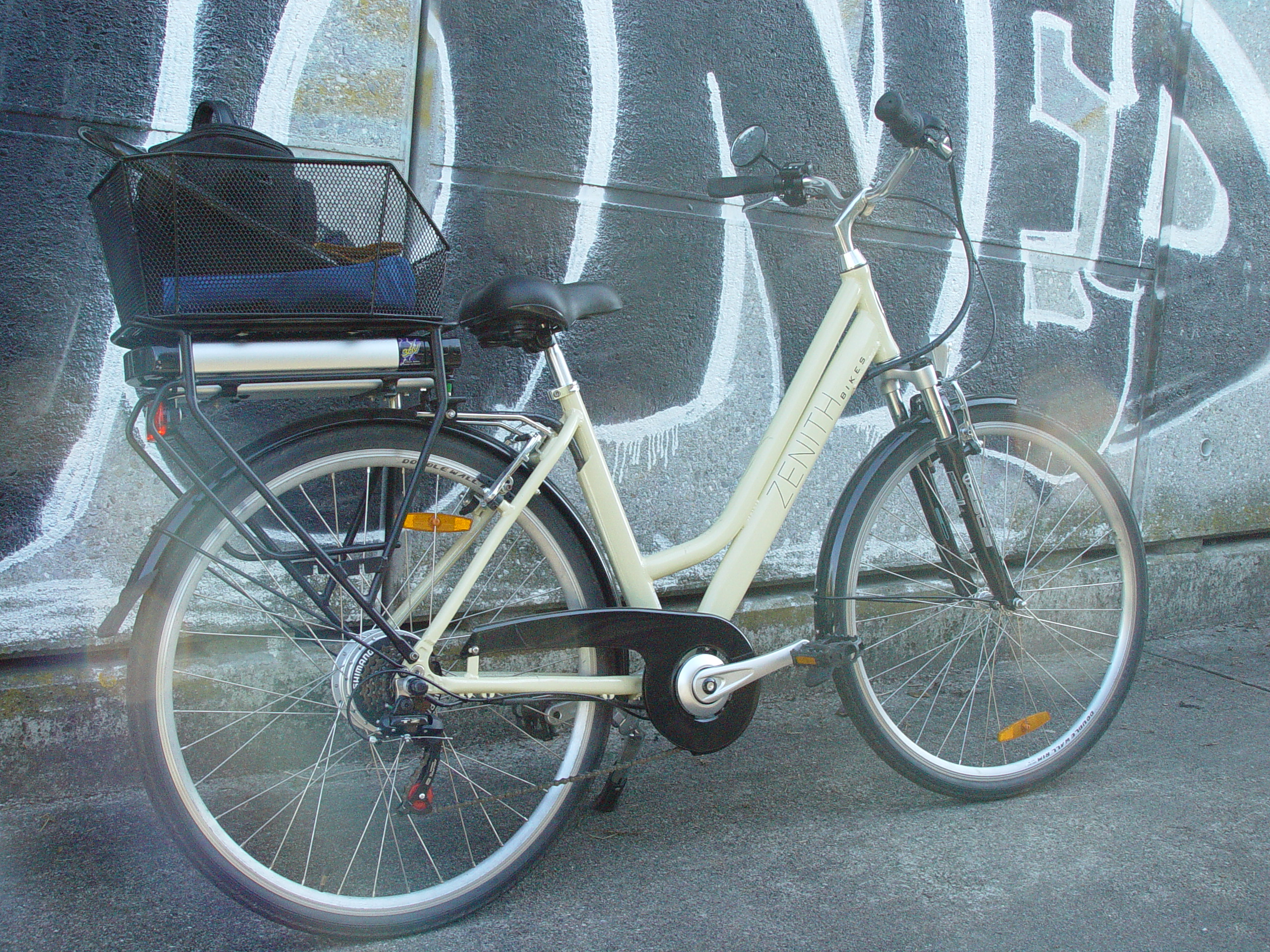

by PETER MURR
There’s been a boom in electric bike popularity in the past couple of years. In the past, they were a novel luxury, ridden only by early adopters who would rather have that than a normal motorbike or scooter. Although now with re nement of the bike’s technology, greater number of manufacturers, range of models, lower prices have all added more to this boom.
Firstly, the PURE DeLuxe III (PDIII) by Zenith Bikes is one such model. In a little over three weeks, the PDIII has performed to a level far surpassing my expectations. It’s titanium frame, weighing 26 kilos makes it robust, yet possible to carry even for a weakling like me. Lights come standard, increasing visibility and reducing risk on the road. The seat is well- padded, preventing soreness from prolonged use, and the bike comes with six levels of gears.
Secondly, the bike’s wheels are 28 inches in diameter, and the tires are certainly not tailored for the great outdoors, but still thick
and grooved enough to maintain a rm grip on the road. Also to manage crossing rougher terrain suchasgravel.Ipersonallydonot recommenddoingsoonaregular basis, for fear of excessively wearing down the rubber. One might even cause damage to the chain and traction mechanisms. This bike is very much geared towards urban traversal, and not for off-road.
Thirdly, we get to the icing on the cake, the tire’s large size allow the bike to chew through distance easier. However what really makes this beauty an upgrade from regular bikes, as well as a practical, enjoyable alternative to motor vehicles is its electrical assistance system.
Fourthly, its powered by a rechargeable Panasonic lithium- ion battery, secured in the rear underneath the basket, the bike’s “motor” has ve levels for the degree of assistance. Controlled and adjusted from the handle-mounted microcomputer, these range from zero, no assistance, to ve, making the climb of inclines and the passage of long at stretches a literal breeze.
The rider still has to pedal, as the system merely assists, and cannot push the bike forward on it’s own. Although it still makes previously dif cult obstacles manageable, and thus encouraging continued and continually eased use. The battery can last for a long length of time, a single charge allowing for approximately 80 kilometers, depending on the level of assistance during the trip.
In my experience, the trip between my home and Webster is ve and a half kilometers, which takes me 15 minutes. This, by the way, is three times faster than taking public transport. Accounting for return trips, it lasts me practically the whole week. Helpfully, both the micro-computer and the battery have a display that tells you exactly what level of charge you have remaining.
I got the PURE to help me get around easier and get in shape. It has succeeded in both those regards, and I can only nd myself as one more rider added to the growth tide of the electric bike wave.
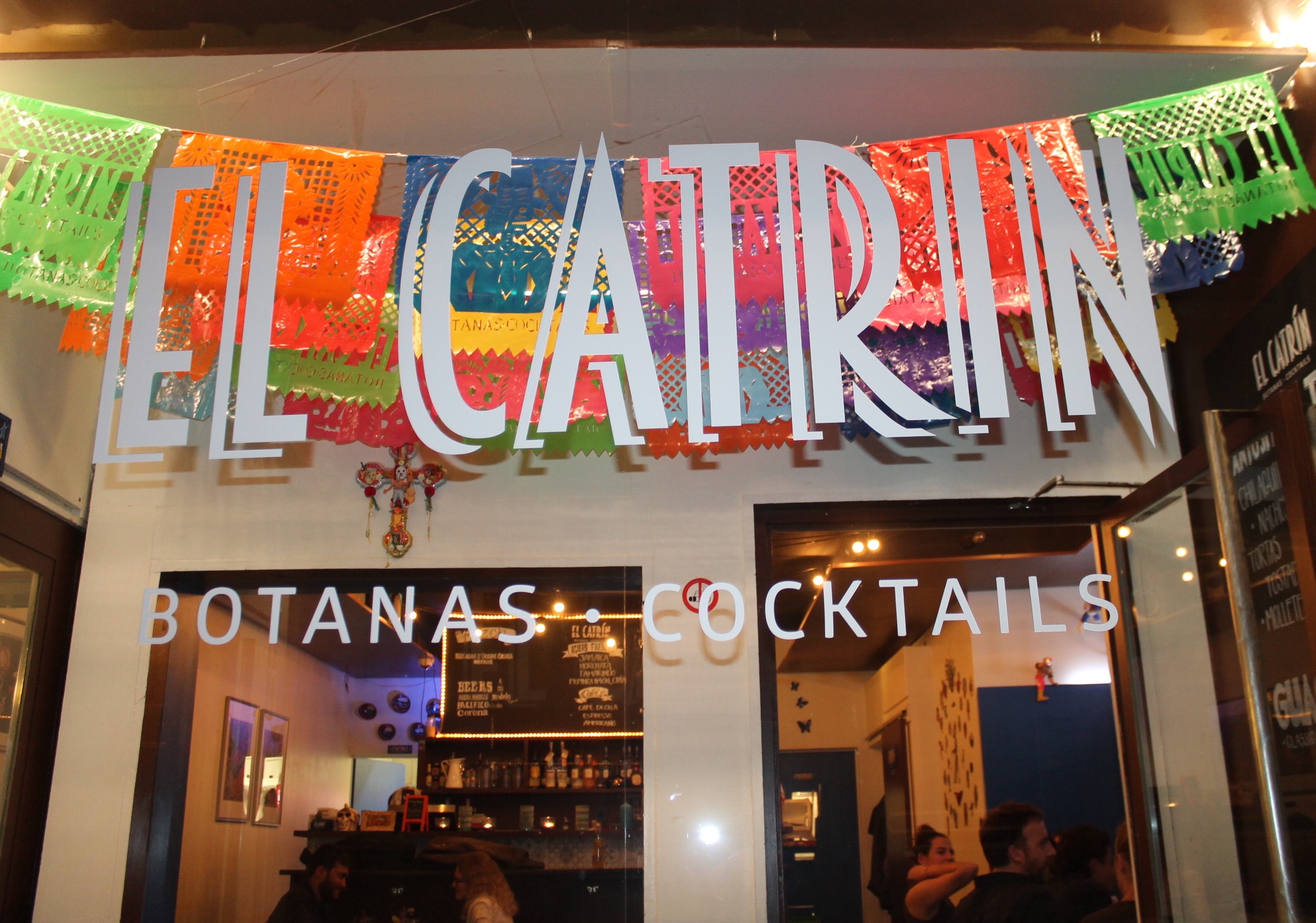
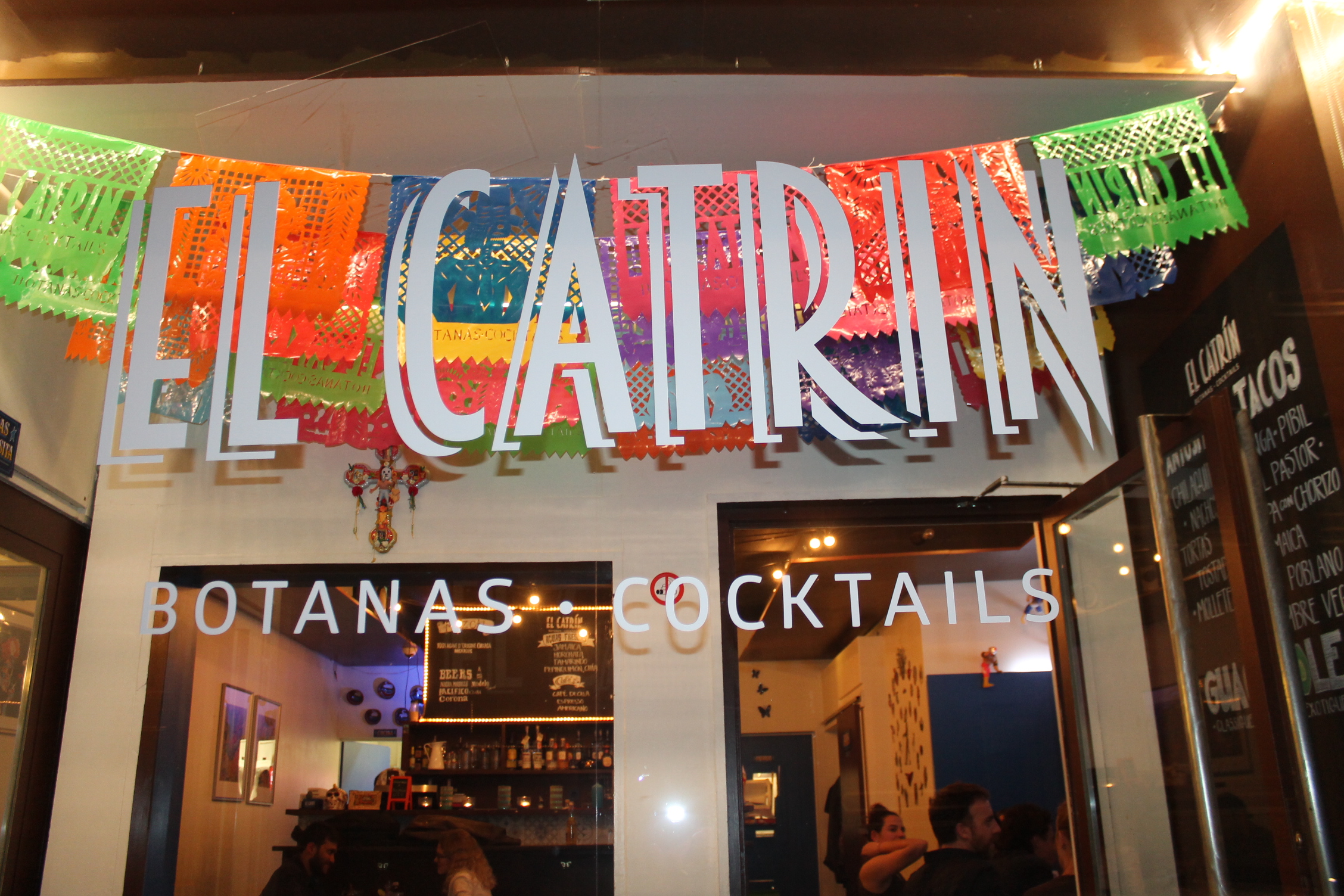
by ALIAA ELSHERBINI
El Catrin, a new restaurant that transports you to Mexico right when you walk in, opened earlier this year at 7 Rue de Richemont, 1202 Geneva. El Catrin knows the way to my heart—nachos, tostadas, guacamoles, tacos, tortas, molletes, quesadillas and Mexican rice. Their drink menu consists of frozen margaritas, tequila, mezcal and three types of Mexican beer.
They offer three different types of guacamole, all of them light, creamy and worth trying with chips. Between the savory chicken taco and the spicy guacamole dip, the frozen margarita balances the meal out.
The ambiance is young and cozy due to the small space—not to mention the colorful walls (not overly decorated) and the upbeat music. The portions of guacamole and chips are fairly small, so keep in mind to order two if you want to share .
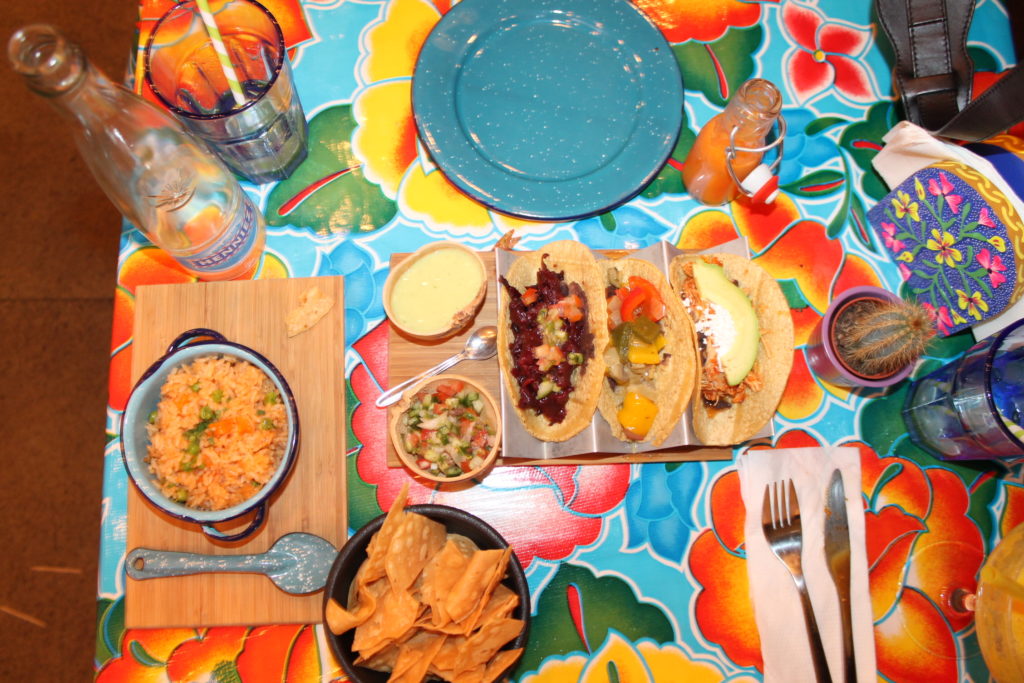 The restaurant is open from Tuesdays to Saturdays, starting from 6:30PM to 11PM and from Tuesdays to Fridays they also open for lunch from 12PM to 2PM. Make sure to reserve beforehand, because the place is small and always packed with people.
The restaurant is open from Tuesdays to Saturdays, starting from 6:30PM to 11PM and from Tuesdays to Fridays they also open for lunch from 12PM to 2PM. Make sure to reserve beforehand, because the place is small and always packed with people.
Head to El Catrin for a drink and a meal with friends that will leave your taste buds happy and satisfied.
Telephone:
076 770 15 54
Cost estimate:
20 CHF and up
Website:
www.elcatringeneva.wixsite.com/elcatringeneva
Facebook Page:
elcatrin.geneva









 The restaurant is open from Tuesdays to Saturdays, starting from 6:30PM to 11PM and from Tuesdays to Fridays they also open for lunch from 12PM to 2PM. Make sure to reserve beforehand, because the place is small and always packed with people.
The restaurant is open from Tuesdays to Saturdays, starting from 6:30PM to 11PM and from Tuesdays to Fridays they also open for lunch from 12PM to 2PM. Make sure to reserve beforehand, because the place is small and always packed with people.